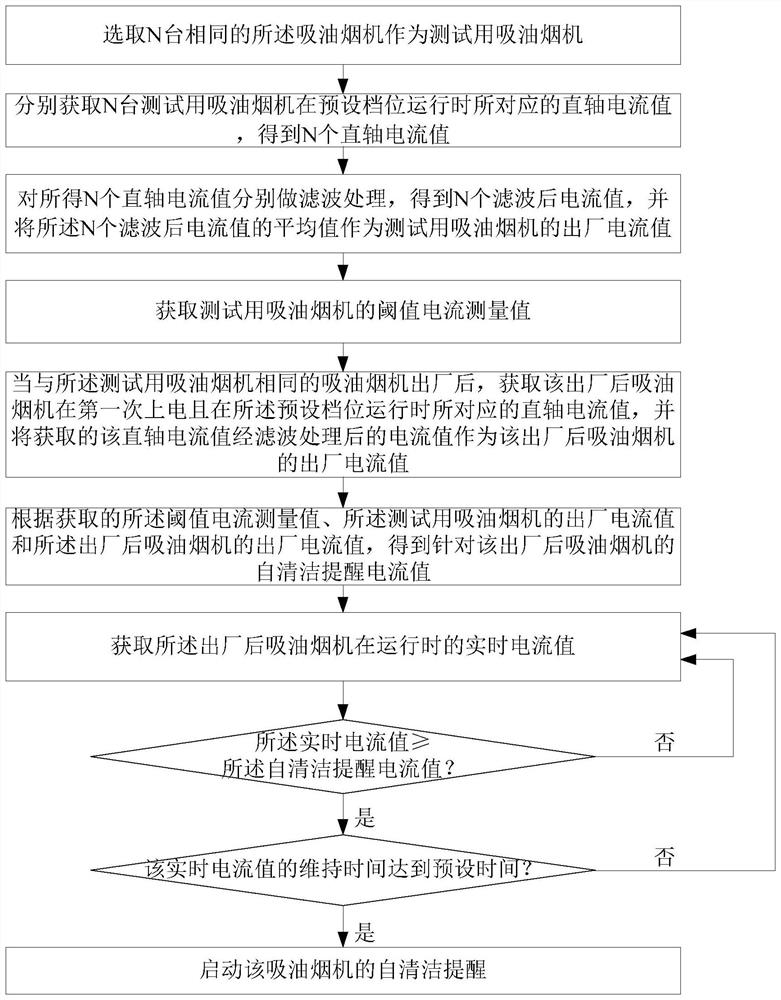Range hood self-cleaning detection method based on direct-current motor driving
A technology of range hoods and DC motors, which is applied in the direction of oil fume removal, heating methods, household heating, etc. It can solve the problems of high hardware installation cost, high cost, and large power consumption, so as to reduce energy consumption and solve inaccurate solutions problems, cost reduction effects
- Summary
- Abstract
- Description
- Claims
- Application Information
AI Technical Summary
Problems solved by technology
Method used
Image
Examples
Embodiment Construction
[0035] The present invention will be further described in detail below in conjunction with the accompanying drawings and embodiments.
[0036] see figure 1 As shown, this embodiment provides a self-cleaning detection method for a range hood driven by a DC motor. The self-cleaning detection method for a range hood includes the following steps 1 to 8:
[0037] Step 1, select N identical range hoods as test range hoods; wherein, N≥1; for example, select 10 identical range hoods in this embodiment, that is, set N=10;
[0038] Step 2, respectively obtain the direct-axis current values corresponding to N sets of test range hoods operating in preset gears, and obtain N direct-axis current values; wherein, the i-th test range hood is in the preset The corresponding direct-axis current value during gear operation is marked as Id(i), 1≤i≤N; in addition, the term "direct-axis current" belongs to the common knowledge of those skilled in the art, and will not be repeated here;
[0039]...
PUM
 Login to View More
Login to View More Abstract
Description
Claims
Application Information
 Login to View More
Login to View More - R&D
- Intellectual Property
- Life Sciences
- Materials
- Tech Scout
- Unparalleled Data Quality
- Higher Quality Content
- 60% Fewer Hallucinations
Browse by: Latest US Patents, China's latest patents, Technical Efficacy Thesaurus, Application Domain, Technology Topic, Popular Technical Reports.
© 2025 PatSnap. All rights reserved.Legal|Privacy policy|Modern Slavery Act Transparency Statement|Sitemap|About US| Contact US: help@patsnap.com

